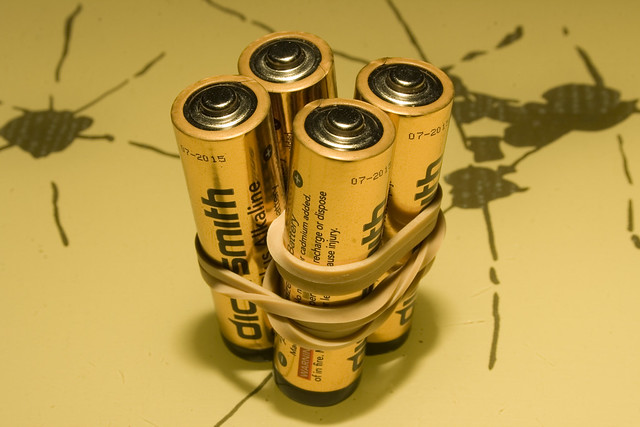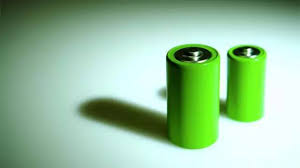Li-ion Battery Maintenance
Nov 09, 2019 Pageview:1349
Why do you need Li-ion battery maintenance?
Lithium-ion rechargeable batteries require routine maintenance and care when handling and use. Lithium-ion batteries have a typical lifespan of around two to three years. Alternatively, 300 to 500 charge cycles, so whichever reached first. One charge cycle is calculated as the period of use from fully charged to fully discharged and dully recharged once again.
Lithium-ion batteries have a limited life span and eventually will lose their ability to hold a charge. Unfortunately, this aging process (loss of capacity) is irreversible. As Li-ion batteries age the length of time they power the product will decrease, until they cannot power the device anymore.
It is worth noting that you should only use specified adapters to charge your batteries. Using an undesignated charger will not only harm your battery but can be very dangerous as you risk the hazard of fire.
How do you care for Li-ion batteries?
Since Lithium ion batteries are delicate devices that require maintenance and careful handling, there are a few things you can do to care for your Li-ion battery and ensure that it has the longest life span possible:
· When you buy a new Li-ion battery, observe and take note of the run time that it provides -fully charged- for powering your device.
· Use the newly obtained information from the previous step as a baseline, and compare run times for this battery and older batteries.
· Take note that the run time of your batteries depends on a number of factors including the type of device they are powering. It is important to take that factor into consideration when judging a Li-ion battery.
· When your Li-ion battery approaches the end of its estimated life cycle, monitor the battery carefully for any swelling or any other faulty signs.
· Consider replacing the battery with a new one if you note either of the following conditions: The battery run time drops below about 80% of the original run time.
· Or if the battery charge time increases significantly.
· When the Li-ion battery is stored for a long period of time unused, make sure to follow the storage instructions provided by the manufacturer of the battery.
To care for a Li-ion battery when using it –during discharging– there are some steps you can follow. Note that following these pointers will make you use Li-ion batteries safely and probably prolong its life span. These steps are:
· Charge your batteries at room temperature
Heat is the worst thing that can happen to a Li-ion battery when charging. That means, if your car is hot do not charge your phone in it, instead wait for the AC to kick in then start charging your battery.
· Choose a Li-ion battery with high capacity instead of carrying spare ones
Charging and Discharging cycles in a Li-ion battery is basically a chemical reaction. Whether you are using the battery or not the chemical reaction occurs. The difference is the rate the chemical reaction happens. That is why having a high capacity battery is better than having two medium to low capacity ones. A high capacity Li-ion battery will eventually have a life span longer than two medium to low capacity batteries combined.
· Perform Partial discharges and avoid full ones as much as possible
Li-ion batteries do not have what we call a charge memory. Which means, that deep discharging cycles are not required. According to experts, it is better to allow partial discharge cycles instead of full ones to preserve the life span of the Li-ion battery.
However, once a month it is better to perform a completely full discharge. Let the Li-ion battery to discharge to the cut-off point and then recharge it once more to the 100%. Despite, the partial discharge being beneficial, it creates a condition called digital memory. This condition decreases the device's power gauge accuracy. Doing that will recalibrate the power gauge.
· Avoid recharging a completely discharged Li-ion battery
When a lithium-ion battery is completely discharged, which means discharging below 2.5 volts per cell, there is a built-in safety circuit that will open and lock the battery. If you plugged your conventional charger the battery will appear dead to you. That is why if you ever encountered this condition go to a specialist to solve this problem. When the Li-ion reaches this state only battery analyzers having boost function will recharge the battery.
If the Li-ion battery was stored in the completely discharged condition, do not recharge them for safety reasons. Go to your local specialist instead.
· When storing a Li-ion battery charge to 40% and store in a dry place
One of the reasons for the decreased life span of your stored battery is that you store it fully charged. The best way to store a Li-ion battery is to charge it to around 40% and then store it in a cool place. So charge or discharge your Li-ion battery to the 40%, wrap it in some isolation bag or fabric and store it in your refrigerator (not the freezer).
How long do Li-ion batteries usually last?
Lithium-ion batteries have the tendency to lose capacity over time, this problem is called "aging of the battery". Unfortunately, it is irreversible and unavoidable.
For high-end Li-ion batteries, after you hit the 1000 charge cycle, the capacity is reduced to only 20% of its original capacity. To fully imagine this process, imagine that whenever you recharge your electronic device you shave a few seconds of its maximum battery life. Take into consideration, discharging and charging your battery in erratic weather conditions will decrease your battery's life span dramatically.
To summarize, a Li-ion battery typically has a lifespan of around two to three years. Alternatively, 300 to 500 charge cycles, so whichever reached first. One charge cycle is calculated as the period of use from fully charged to fully discharged and dully recharged once again.
- Prev Article: How to Buy Lithium-Ion Batteries
- Next Article: Lithium Batteries vs Lead Acid Batteries
Leave Message
Hottest Categories
-
Hottest Industry News
-
Latest Industry News











